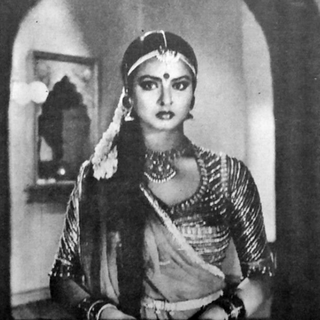
‘Decoupled’ Tried to Satirize ‘Toxic’ Societal Norms, Ended Up Normalizing Them
The commentary in Decoupled feels like it originated from the grievances of yet another “dudebro,” whose privilege suddenly seems “at risk” in the post-#MeToo era.

Netflix’s latest offering, Decoupled, promotes itself as a satirical take on marriage and society. Intrigued — although the term I should probably use is “baited” — I started watching the series only to realize I’d signed up for a cringe-fest.
Starring R. Madhavan and Surveen Chawla, the show is about modern relationships. Manu Joseph, who wrote and created the show, said “it is about behavior, the torture of love, and the clash of the rich and the poor.”
Yet, the running social commentary was not only lacking both in wit and sharpness, but as Ahendrila Goswami puts it, also “suited only for an audience in ivory towers.” But that’s hardly the worst aspect of Decoupled. What bothered me the most about the show was how it was so cocooned in the privileged cis-het male gaze that it almost seemed like I was listening to a middle-aged dudebro-aspirant — played by R. Madhavan — launching into misogynist rants at every chance he got. Far from being a biting satire, this was a series that was too proud of its own self-perceived humor to actually land.
Named Arya Iyer — already a marker of caste privilege that he is oblivious to — Madhavan’s character is the second-bestselling author in India. He is, simultaneously, also the personification of most things wrong with the upper-caste, upper-class society today. For one, he is so self-absorbed and deluded that he genuinely believes it’s his monologues and practical “jokes” that hold up the mirror to society. Well, they don’t. But letting its protagonist get away with believing so, makes the show complicit in perpetuating the hatred he spouts towards different social groups — by normalizing it.
“It’s almost as if Decoupled is part of the same problem that it’s trying to address,” Suchin Mehrotra said in his review of the series.
From fat-shaming to making fun of therapists and relief-workers to even making light of the #MeToo movement — the show relentlessly tried to poke fun at the “woke”-culture. But, to me, it sounded like a slightly updated version of sexist spouse jokes on WhatsApp.
In the very first episode, Arya attempts to mansplain to his ex-wife why women love flowers — apparently, it’s because “flowers are vaginas.” Needless to say, neither do all women like flowers, nor do all women have vaginas. So, while I’m not quite sure what Arya was getting at, I do think this sequence should have served as a warning for me to pick a different show to watch because from here on, Decoupled only got worse.
Related on The Swaddle:
‘Kota Factory’ Fetishizes Hard Work and Merit, Perpetuating a Culture of Casteism
The show-makers loved to take digs at Parasite — the “chilling commentary on class” that became the first non-English language film to win an Oscar for Best Picture in 2020. Interestingly, the references to the movie mostly come up when the character of a Korean investor, Mr. Lee, made an appearance. Is that racist in a way somewhat similar to making references to “noodles” whenever a character’s nationality is revealed as Chinese? Perhaps.
To add to that, the character of Arya’s wife — named Shruti Sharma, played by Chawla — appears visibly distressed the morning after almost hooking up with Mr. Lee because she comes across news of a “novel virus outbreak” in South Korea. At this point, Mr. Lee had seemingly been in India for a while, which made me wonder how xenophobia could possibly not be the reason behind her concerns. It also brought back memories of news from last year about Indians from the north-eastern region of the country dealing with “racist attacks” immediately after the pandemic broke out.
Casteism and classism among the Indian elite, while despicable, are hardly shocking — they’re too deeply entrenched in the outlook of the real-life Arya Iyers of India for their privileged gaze to penetrate. But given that performative woke-ness is yet another one of the defining traits of individuals like him, who often use Twitter to stoke their egos by scoring brownie points with their followers, I wasn’t expecting the problematic narratives surrounding Mr. Lee’s character — especially in the wake of global discourses on racism with #BlackLivesMatter dominating social media over the course of 2020.
Adding to its misogynistic, casteist ideas about beauty, Decoupled stated loud and clear that women only hire domestic workers who aren’t “pretty,” besides implying through its choice of actors in the same sequence that only “fair-skinned” translates to “pretty.”
Moreover, Shruti, who was introduced as a high-profile investment banker, had her role reduced to that of a “hot” plot device to steer Arya’s narrative forward. As part of her job, all the audience sees is Shruti attending parties in beautiful, figure-accentuating clothes, flirting with Mr. Lee, or for the sake of her career, being forced to sit through the unwelcome advances her “intellectual” neighbor, political economist Dr. Suman Basu, makes towards her.
“With its off-putting bro-code bravado and casual mean-spiritedness, Decoupled has missed the boat by at least 10 years… But as it stands, it comes off as positively prehistoric, giving Joseph an outlet to express his disdain for therapists, the ‘NDTV types’, and the #MeToo movement — all by using his characters as a mouthpiece,” The Indian Express stated, adding: “Arya lives in a bubble of his own making, which separates him not just from the real world, but also his family… Decoupled comes dangerously close to sympathizing with the sort of people that it wants to satirize.”
Sarabhai vs. Sarabhai, from the early 2000s, arguably did a better job at exposing the hypocrisy and savior complex of the urban rich, who throw decadent parties for charitable causes, than Decoupled did almost two decades later.
Related on The Swaddle:
How ‘Maid’ Helps Understand Violence Without Blood and Bruises
The Indian Express further notes, “[T]here might be symbolic relevance in seeing a ‘lowly’ driver walk into a pretentious art exhibition, pluck a banana off an installation meant to depict the wealth gap, and eat it. But because the scene is framed from Arya’s apathetic perspective, the satire is muddled.” Not only that, the scene is also set up in a way, where Arya uses his driver for his amusement — ironically, to highlight how the socio-economically deprived class views the way they’re treated by the “educated elite.” “This is precisely what made Parasite… different. Those movies punched up; Decoupled constantly punches down,” the article continued.
The show aspired to be somewhat like The White Lotus or Veep, coming from Joseph, who believes, “People who are morally frail become ‘woke’ because they have to pantomime virtues that don’t really possess.”
Unfortunately, however, it fell far from its mark. Perhaps, the commentary would have worked if the show’s creators were truly disillusioned by left-leaning institutions after buying into their promise. Instead, it seemed like it originated from the grievances of yet another “dudebro,” whose privilege is suddenly “at risk” in the post-#MeToo, Jai Bhim-watching India, leading him to lament that society is suddenly “too sensitive.” Most of us have met, at least, one Arya Iyer in recent times, haven’t we?
Having said that, I do want to applaud the show for telling uncles that it doesn’t become less important to wear condoms just because the people involved may be beyond their reproductive age. If only the show could’ve kept that “vibe” alive!
“Decoupled alarmed me; it should force us to stop and think about the nature of content that is now streaming on the OTT platforms because of a spike in the demand for creative content to constantly be able to engage the audience. It makes us smirk, albeit occasionally, but at what cost?” Goswami notes.
Even though preaching safe sex for all ages is going to remain the highlight of Decoupled for me, the lingering takeaway is going to be disappointment — if not cringe.
Devrupa Rakshit is an Associate Editor at The Swaddle. She is a lawyer by education, a poet by accident, a painter by shaukh, and autistic by birth. You can find her on Instagram @devruparakshit.
Related


Overrated, Not: ‘The Little Mermaid’
